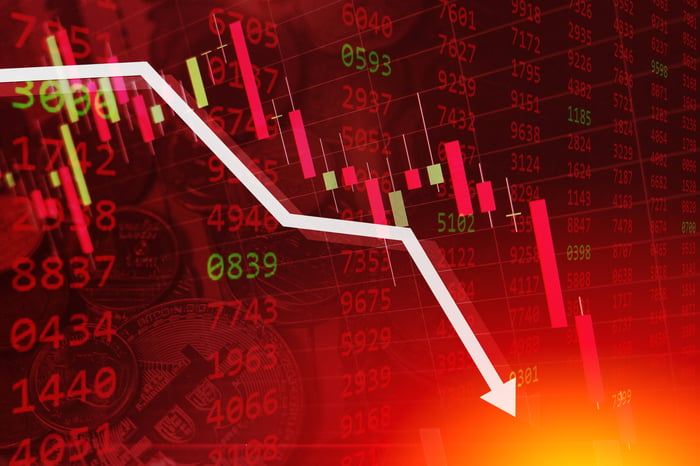What happened
Pacific Ethanol (ALTO 0.81%) is the little engine that could -- as in, it could transform its business from a low-margin maker of gasoline additives into a high-margin producer of alcohol for disinfectants and hand sanitizers. That coronavirus pivot is the reason Pacific Ethanol stock has soared more than 1,300% over the past year. Sadly for investors, it's also the root cause behind the company's decision to release a large secondary stock offering and the reason the stock was down 8.8% at 10:40 a.m. EDT today.

Image source: Getty Images.
So what
In a surprise announcement Monday afternoon, Pacific Ethanol said it will change its name to reflect its new corporate focus on the production of "specialty alcohols and essential ingredients" for the fight against the coronavirus. (The company doesn't seem to have settled yet on a new name, however.)
Historically, 85% of Pacific Ethanol's production has gone to the ethanol-for-gasoline market, but in this remarkable year, the proportion of ethanol production going into gas tanks has already plummeted to just 50% (and falling).
This is doing wonders for the business. In preliminary Q3 results announced on Monday, sales plummeted 44% during the quarter, but instead of losing money on those sales, as the company did in last year's Q3, it earned a profit of about $15 million. On a 63.5 million share count, that should work out to about $0.24 per share.
Now what
Investors don't like either of those numbers. Heading into the third-quarter report, analysts are still predicting that Pacific Ethanol will report sales of $210 million, and profits of $0.26 per share. So if the actual numbers, which will be reported Nov. 9, end up reflecting the preliminary numbers just announced, it looks like Pacific Ethanol will miss on earnings this quarter, which could cost the stock some market cap.
Before that happens, therefore, Pacific Ethanol plans to make hay while the sun shines, and will sell $75 million worth of its massively run-up stock at $8.42 per share. In so doing, it will dilute its existing shareholders by about 5.1 million shares. Not coincidentally, this works out to roughly 7.5% dilution, or about the amount the stock has just fallen.




